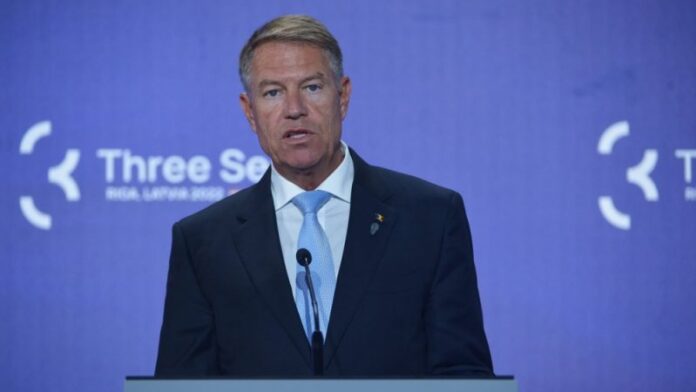Russian attacks on Ukraine’s Danube River ports will slow down the export of grains and other routes need to be enhanced, Romanian President Klaus Iohannis said, according to Reuters.
Since July, when Moscow abandoned a deal that lifted a de facto Russian blockade of Ukraine’s Black Sea ports, it has repeatedly struck Ukrainian river ports that lie across the Danube from Romania.
Romania’s Black Sea port of Constanta is Ukraine’s largest alternative export route, with grains arriving by road, rail or barge on the Danube. Ukraine is one of the world’s biggest grain exporters.
President Iohannis, speaking late on Wednesday at a summit of Three Seas Initiative countries in Bucharest, said: “Of course, the attacks on Ukrainian ports on the Danube are a huge problem. Of course it will in a way slow down exports.”
“We will enhance the other routes, we accepted Ukrainian maritime transports through our Romanian territorial waters off the Black Sea, we will continue to enhance exports on the rail and on the road.”
Speaking at the same press conference, Croatian Prime Minister Andrej Plenkovic said his country had offered access to the Mediterranean through its ports and that its transport ministry was working with the European Commission and Ukraine.
Romania is one of five eastern EU countries alongside Bulgaria, Hungary, Poland and Slovakia that saw a surge of Ukrainian grain imports since the Russian invasion, which distorted local markets and prompted protests from farmers, leading the EU to approve temporary trade restrictions.
Speaking by video link at the summit, Ukraine’s President Volodymyr Zelenskiy urged the countries not to extend the ban.
“Ukraine is strongly against any further restrictions on the export of our grain,” he said.
“Farmers in different countries use Ukrainian feed for the benefit of their farms. Companies from different countries make money on transit. And this is a benefit for the entire European economy.”
The import ban expires on September 15 and the five states have asked the European Commission to extend it.


